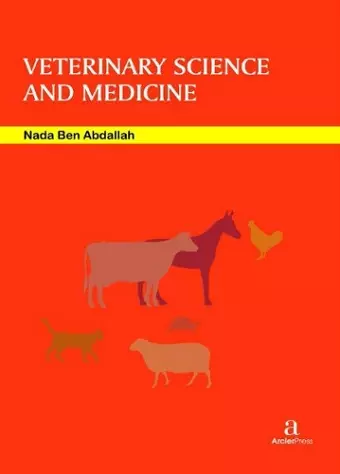Veterinary Science and Medicine
Format:Hardback
Publisher:Arcler Education Inc
Published:30th Nov '16
Currently unavailable, our supplier has not provided us a restock date

Veterinary science is the application of medical, diagnostic, and therapeutic principles to companion, domestic, exotic, wildlife, and production animals. Veterinary science is vital to the study and protection of animal production practices, herd health, and monitoring the spread of widespread diseases. It requires the acquisition and application of scientific knowledge in multiple disciplines and uses technical skills towards disease prevention in both domestic and wild animals. Veterinary medicine is the branch of medicine that deals with the prevention, diagnosis, and treatment of disease, disorder, and injury in non-human animals. The scope of veterinary medicine is wide, covering all animal species, both domesticated and wild, with a wide range of conditions that can affect different species. Veterinary medicine is widely practiced, both with and without professional supervision. Professional care is most often led by a veterinary physician (also known as a vet, veterinary surgeon, or veterinarian), but also by paraveterinary workers such as veterinary nurses or technicians. This can be augmented by other paraprofessionals with specific specialisms such as animal physiotherapy or dentistry, and species relevant roles such as farriers. Veterinary science helps human health through the monitoring and control of zoonotic disease (infectious disease transmitted from non-human animals to humans), food safety, and indirectly through human applications from basic medical research. They also help to maintain food supply through livestock health monitoring and treatment, and mental health by keeping pets healthy and long living. Veterinary scientists often collaborate with epidemiologists, and other health or natural scientists depending on the type of work. Paraveterinary workers, including veterinary nurses, technicians and assistants, either assist vets in their work, or may work within their own scope of practice, depending on skills and qualifications, including in some cases, performing minor surgery. The role of paraveterinary workers is less homogeneous globally than that of a vet, and qualification levels, and the associated skill mix, vary widely. Ethically, veterinarians are usually obliged to look after animal welfare. Veterinarians assist in ensuring the quality, quantity, and security of food supplies by working to maintain the health of livestock.
ISBN: 9781680945928
Dimensions: unknown
Weight: unknown
265 pages